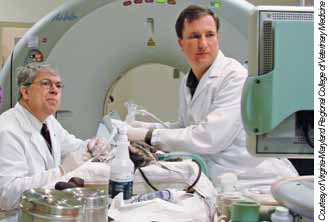Vet, human medicine start regenerative medicine venture
The Virginia-Maryland Regional College of Veterinary Medicine announced Jan. 20 the formation of the Center for Veterinary Regenerative Medicine.
The center is the product of a research agreement that Virginia-Maryland made with Wake Forest University's Institute for Regenerative Medicine in Winston-Salem, N.C., according to a Virginia-Maryland press release.
The veterinary college and the institute will work together with ongoing collaborations in translational research in regenerative medicine through the new center. The agreement facilitates the application of cutting-edge regenerative treatments to both human and animal patients, the release stated.

There is no dedicated building; it is a virtual center. Some of the research will take place in the translational medicine facility the veterinary college is planning to build as well as in existing facilities.
As part of the collaboration, clients at Virginia-Maryland's veterinary teaching hospital, located on the Virginia Tech campus in Blacksburg, may have the option to enter their pets into clinical trials, giving them access to cutting-edge technology. In return, the Wake Forest institute will have the ability to evaluate new regenerative medicine techniques in spontaneously occurring animal diseases that can be models for human disease. This collaboration with the veterinary college will allow researchers at Wake Forest to assess the efficacy of regenerative treatments to remedy clinical conditions more quickly and, therefore, facilitate their application to human medicine. These clinical applications will come later and will be housed at the veterinary teaching hospital.
The center has been up-and-running in the sense that research has been ongoing for more than a year. Current research at Virginia-Maryland focuses on chronic kidney disease in cats, which are being treated in an effort to induce kidney regeneration and restore renal function.
Additionally, a stem cell approach is being applied to dogs with spay-induced incontinence. Muscle stem cells, placed into the neck of the dog's bladder, may help to strengthen the bladder muscle and cure the condition, according to the release.
Other collaborative projects in start-up mode involve canine and bovine induced pluripotent cells, rapid pathogen detection, wound healing in horses, and canine cardiomyopathy.
Willard H. Eyestone, PhD, research assistant professor of reproductive biology and biotechnology at Virginia-Maryland, will act as lead faculty member at the veterinary college and the liaison to Wake Forest in the collaboration, according to the release. Dr. J. Koudy Williams, professor of pathology and surgical sciences at Wake Forest, will serve as the lead faculty member from the institute.